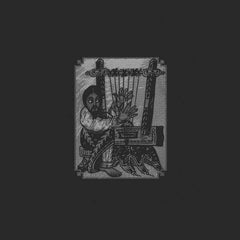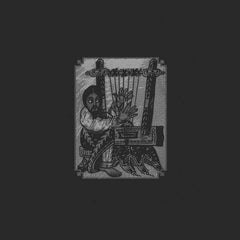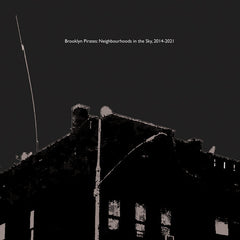クイックビュー
{"id":8980676804858,"title":"Various Artists (Death Is Not The End) \/\/ Elders of the Begena: The Harp of David in Ethiopia TAPE","handle":"various-artists-death-is-not-the-end-elders-of-the-begena-the-harp-of-david-in-ethiopia-tape","description":"\u003cp\u003eイギリス・ロンドンの発掘専門レーベルDeath Is Not The Endが、2025年10月にリリースした、エチオピアの伝統楽器ベゲナにフォーカスしたカセットです。\u003c\/p\u003e\n\u003cp\u003e※デジタル音源を無料でお送りいたしますのでお気軽にご連絡くださいませ\u003c\/p\u003e\n\u003cp\u003e以下、\u003cspan class=\"bcTruncateMore\"\u003eAlemu Agaに\u003c\/span\u003eよる解説です。\u003c\/p\u003e\n\u003cp\u003e\u003cem\u003e\"ベゲナは、5800年以上も生き残ってきた世界でも稀な楽器の一つである。その魅力は、その歴史の長さだけでなく、製造方法と演奏目的がこれほど長い年月を経ても一切変わっていない点にある。今もなお木材と羊の腸(弦用)や胴体を覆う革といった動物性素材で作られている。祈りや神への賛美、瞑想のために用いられる点も昔と変わらず、現代まで受け継がれている。ハイレ・セラシエ皇帝が打倒された後のデルグ政権時代、この楽器は重要視されなくなった。断食の季節にラジオで放送されていたベゲナも、すべて中止された。当時私は国内唯一の音楽学校で教師をしていたが、発展に必要な支援を得られず、教えることを許されなかったため、やむなく辞めざるを得なかった。したがって、それは確かに消えゆく大衆芸術となったと言える。しかし今は違う。とりわけ過去15、16年で復活を遂げた。ベゲナ奏者は多く、その大半は若者で、私が教えた生徒だけでも500人を超える。新入生のために楽器を作るベゲナ製作者もまだ何人か残っている。この楽器の興味深い点は、そこから奏でられる音楽、あるいは音色には、人々を集中させ、静寂に保ち、思考に没入させ、語られる内容に思いを巡らせる特別な力があることだ。これは特筆すべき性質で、エチオピア人でなくても、誰でも聴くことができる。自動的に聴く者を静寂と集中へと導くのである。\"\u003c\/em\u003e\u003c\/p\u003e\n\u003cp\u003e\u003ciframe style=\"border: 0; width: 100%; height: 120px;\" src=\"https:\/\/bandcamp.com\/EmbeddedPlayer\/album=2724105592\/size=large\/bgcol=ffffff\/linkcol=0687f5\/tracklist=false\/artwork=none\/transparent=true\/\"\u003e\u003c\/iframe\u003e\u003c\/p\u003e\n\u003cp\u003eレーベルその他作品は\u003ca href=\"https:\/\/tobirarecords.com\/collections\/dinte\"\u003eこちら\u003c\/a\u003e \/\/\/ Click \u003ca href=\"https:\/\/tobirarecords.com\/collections\/dinte\"\u003ehere\u003c\/a\u003e to see more Death Is Not The End releases available at Tobira.\u003c\/p\u003e\n\u003cp\u003e---------------------------------------\u003c\/p\u003e\n\u003cp\u003eCassette in norelco case.\u003cbr\u003e\u003cmeta charset=\"utf-8\"\u003e\u003cspan\u003eRecorded by Pit Budde in Addis Ababa, 1999 \u0026amp; 2008\u003c\/span\u003e\u003cbr\u003e\u003c\/p\u003e\n\u003cp\u003e\u003cstrong\u003eTracklist\u003c\/strong\u003e:\u003c\/p\u003e\n\u003cp class=\"MsoNormal\"\u003e1. Tafese Tesfaye - About the Suffering of Christ 03:49\u003cbr\u003e2. Admassu Fikre - The Futility of Life 04:08\u003cbr\u003e\u003cspan style=\"font-family: -apple-system, BlinkMacSystemFont, 'San Francisco', 'Segoe UI', Roboto, 'Helvetica Neue', sans-serif; font-size: 0.875rem;\"\u003e3. Seyoum Mengistu - Went to Hermitage 03:11\u003cbr\u003e\u003c\/span\u003e\u003cspan style=\"font-family: -apple-system, BlinkMacSystemFont, 'San Francisco', 'Segoe UI', Roboto, 'Helvetica Neue', sans-serif; font-size: 0.875rem;\"\u003e4. Alemu Aga - The World Is a Place of Rest 04:25\u003cbr\u003e\u003c\/span\u003e\u003cspan style=\"font-family: -apple-system, BlinkMacSystemFont, 'San Francisco', 'Segoe UI', Roboto, 'Helvetica Neue', sans-serif; font-size: 0.875rem;\"\u003e5. Seyoum Mengistu - Worship for Peace 02:44\u003cbr\u003e\u003c\/span\u003e6. Tafese Tesfaye - In the Name of the Father 03:05\u003cbr\u003e\u003cspan style=\"font-family: -apple-system, BlinkMacSystemFont, 'San Francisco', 'Segoe UI', Roboto, 'Helvetica Neue', sans-serif; font-size: 0.875rem;\"\u003e7. Alemu Aga - The Sacred Names of the Begena 06:36\u003cbr\u003e\u003c\/span\u003e\u003cspan style=\"font-family: -apple-system, BlinkMacSystemFont, 'San Francisco', 'Segoe UI', Roboto, 'Helvetica Neue', sans-serif; font-size: 0.875rem;\"\u003e8. Seyoum Mengistu - Unwillingly 04:27\u003cbr\u003e\u003c\/span\u003e\u003cspan style=\"font-family: -apple-system, BlinkMacSystemFont, 'San Francisco', 'Segoe UI', Roboto, 'Helvetica Neue', sans-serif; font-size: 0.875rem;\"\u003e9. Admassu Fikre - Sunday Night (The Resurrection) 02:55\u003cbr\u003e\u003c\/span\u003e\u003cspan style=\"font-family: -apple-system, BlinkMacSystemFont, 'San Francisco', 'Segoe UI', Roboto, 'Helvetica Neue', sans-serif; font-size: 0.875rem;\"\u003e10. Alemu Aga - Cry of Praise and Adoration to God 04:09\u003cbr\u003e\u003c\/span\u003e11. Admassu Fikre - The Praise of the Lord 05:31\u003cbr\u003e12. Tafese Tesfaye - The Praise of the Virgin Mary 04:34\u003c\/p\u003e\n\u003cp\u003eFrom contributing artist \u003cmeta charset=\"utf-8\"\u003e\u003cspan class=\"bcTruncateMore\"\u003eAlemu Aga: \u003c\/span\u003e\u003c\/p\u003e\n\u003cp\u003e\u003cmeta charset=\"utf-8\"\u003e\u003cspan\u003e\"\u003cem\u003eThe Begena is one of those rare musical instruments of the world that has survived for more than 5800 years. What is fascinating about it is not only its age but the fact that both its manufacture and the purpose for which it is being played have never changed during all these years. It is still made of wood and animal products, such as the intestine of the sheep for the strings, the leather that covers the sound box. It is used for praying, for praising God and for meditation, just as it was in the olden days and it has survived until the present day. During the time of the Derg regime, after the overthrow of the emperor Haile Selassie, it was no longer considered important. As for the Begena, which used to be broadcasted through the radio during the fasting season, all this was stopped. At that time I was a teacher at the music school, the only music school in the country, and because I did not get the necessary support to develop it I had to stop, because I was not allowed to teach. And so we could say that it did become a disappearing popular art. But not anymore, especially in the past 15, 16 years it has revived. There are many Begena players, mostly youngsters, of whom I have taught more than 500 students. Still there are some Begena makers, who make the instrument for new students. What is interesting about this instrument is that the music, or\u003c\/em\u003e\u003c\/span\u003e\u003cspan class=\"bcTruncateMore\"\u003e\u003cem\u003e the tone that comes out of this instrument, has a special power to make people to concentrate, to keep quiet, to be carried away in thoughts, thinking of what is said. This is a special quality. You don't have to be an Ethiopian, anybody can listen to it, automatically it will make him keep quiet and concentrate.\"\u003c\/em\u003e\u003cbr\u003e\u003c\/span\u003e\u003c\/p\u003e\n\u003cp\u003eArtist : Various\u003c\/p\u003e\n\u003cp\u003eLabel : \u003cmeta charset=\"utf-8\"\u003eDeath Is Not The End\u003c\/p\u003e\n\u003cp\u003ecat no : DEATH114\u003c\/p\u003e","published_at":"2025-11-02T06:40:57+09:00","created_at":"2025-11-01T18:34:41+09:00","vendor":"Tobira Records","type":"","tags":["death is not the end","field recording","new","tape"],"price":298000,"price_min":298000,"price_max":298000,"available":true,"price_varies":false,"compare_at_price":null,"compare_at_price_min":0,"compare_at_price_max":0,"compare_at_price_varies":false,"variants":[{"id":47891149062394,"title":"Default Title","option1":"Default Title","option2":null,"option3":null,"sku":null,"requires_shipping":true,"taxable":true,"featured_image":null,"available":true,"name":"Various Artists (Death Is Not The End) \/\/ Elders of the Begena: The Harp of David in Ethiopia TAPE","public_title":null,"options":["Default Title"],"price":298000,"weight":60,"compare_at_price":null,"inventory_management":"shopify","barcode":"5050580856905","requires_selling_plan":false,"selling_plan_allocations":[]}],"images":["\/\/tobirarecords.com\/cdn\/shop\/files\/beg1_5b39be30-b762-4c9b-b4b0-7eb5aab5a6f8.jpg?v=1761989574","\/\/tobirarecords.com\/cdn\/shop\/files\/beg2_15a73308-fd6b-4cbf-afc5-b45abbf5ed1c.jpg?v=1761989574"],"featured_image":"\/\/tobirarecords.com\/cdn\/shop\/files\/beg1_5b39be30-b762-4c9b-b4b0-7eb5aab5a6f8.jpg?v=1761989574","options":["Title"],"media":[{"alt":null,"id":37361888854266,"position":1,"preview_image":{"aspect_ratio":1.0,"height":700,"width":700,"src":"\/\/tobirarecords.com\/cdn\/shop\/files\/beg1_5b39be30-b762-4c9b-b4b0-7eb5aab5a6f8.jpg?v=1761989574"},"aspect_ratio":1.0,"height":700,"media_type":"image","src":"\/\/tobirarecords.com\/cdn\/shop\/files\/beg1_5b39be30-b762-4c9b-b4b0-7eb5aab5a6f8.jpg?v=1761989574","width":700},{"alt":null,"id":37361888887034,"position":2,"preview_image":{"aspect_ratio":1.0,"height":1200,"width":1200,"src":"\/\/tobirarecords.com\/cdn\/shop\/files\/beg2_15a73308-fd6b-4cbf-afc5-b45abbf5ed1c.jpg?v=1761989574"},"aspect_ratio":1.0,"height":1200,"media_type":"image","src":"\/\/tobirarecords.com\/cdn\/shop\/files\/beg2_15a73308-fd6b-4cbf-afc5-b45abbf5ed1c.jpg?v=1761989574","width":1200}],"requires_selling_plan":false,"selling_plan_groups":[],"content":"\u003cp\u003eイギリス・ロンドンの発掘専門レーベルDeath Is Not The Endが、2025年10月にリリースした、エチオピアの伝統楽器ベゲナにフォーカスしたカセットです。\u003c\/p\u003e\n\u003cp\u003e※デジタル音源を無料でお送りいたしますのでお気軽にご連絡くださいませ\u003c\/p\u003e\n\u003cp\u003e以下、\u003cspan class=\"bcTruncateMore\"\u003eAlemu Agaに\u003c\/span\u003eよる解説です。\u003c\/p\u003e\n\u003cp\u003e\u003cem\u003e\"ベゲナは、5800年以上も生き残ってきた世界でも稀な楽器の一つである。その魅力は、その歴史の長さだけでなく、製造方法と演奏目的がこれほど長い年月を経ても一切変わっていない点にある。今もなお木材と羊の腸(弦用)や胴体を覆う革といった動物性素材で作られている。祈りや神への賛美、瞑想のために用いられる点も昔と変わらず、現代まで受け継がれている。ハイレ・セラシエ皇帝が打倒された後のデルグ政権時代、この楽器は重要視されなくなった。断食の季節にラジオで放送されていたベゲナも、すべて中止された。当時私は国内唯一の音楽学校で教師をしていたが、発展に必要な支援を得られず、教えることを許されなかったため、やむなく辞めざるを得なかった。したがって、それは確かに消えゆく大衆芸術となったと言える。しかし今は違う。とりわけ過去15、16年で復活を遂げた。ベゲナ奏者は多く、その大半は若者で、私が教えた生徒だけでも500人を超える。新入生のために楽器を作るベゲナ製作者もまだ何人か残っている。この楽器の興味深い点は、そこから奏でられる音楽、あるいは音色には、人々を集中させ、静寂に保ち、思考に没入させ、語られる内容に思いを巡らせる特別な力があることだ。これは特筆すべき性質で、エチオピア人でなくても、誰でも聴くことができる。自動的に聴く者を静寂と集中へと導くのである。\"\u003c\/em\u003e\u003c\/p\u003e\n\u003cp\u003e\u003ciframe style=\"border: 0; width: 100%; height: 120px;\" src=\"https:\/\/bandcamp.com\/EmbeddedPlayer\/album=2724105592\/size=large\/bgcol=ffffff\/linkcol=0687f5\/tracklist=false\/artwork=none\/transparent=true\/\"\u003e\u003c\/iframe\u003e\u003c\/p\u003e\n\u003cp\u003eレーベルその他作品は\u003ca href=\"https:\/\/tobirarecords.com\/collections\/dinte\"\u003eこちら\u003c\/a\u003e \/\/\/ Click \u003ca href=\"https:\/\/tobirarecords.com\/collections\/dinte\"\u003ehere\u003c\/a\u003e to see more Death Is Not The End releases available at Tobira.\u003c\/p\u003e\n\u003cp\u003e---------------------------------------\u003c\/p\u003e\n\u003cp\u003eCassette in norelco case.\u003cbr\u003e\u003cmeta charset=\"utf-8\"\u003e\u003cspan\u003eRecorded by Pit Budde in Addis Ababa, 1999 \u0026amp; 2008\u003c\/span\u003e\u003cbr\u003e\u003c\/p\u003e\n\u003cp\u003e\u003cstrong\u003eTracklist\u003c\/strong\u003e:\u003c\/p\u003e\n\u003cp class=\"MsoNormal\"\u003e1. Tafese Tesfaye - About the Suffering of Christ 03:49\u003cbr\u003e2. Admassu Fikre - The Futility of Life 04:08\u003cbr\u003e\u003cspan style=\"font-family: -apple-system, BlinkMacSystemFont, 'San Francisco', 'Segoe UI', Roboto, 'Helvetica Neue', sans-serif; font-size: 0.875rem;\"\u003e3. Seyoum Mengistu - Went to Hermitage 03:11\u003cbr\u003e\u003c\/span\u003e\u003cspan style=\"font-family: -apple-system, BlinkMacSystemFont, 'San Francisco', 'Segoe UI', Roboto, 'Helvetica Neue', sans-serif; font-size: 0.875rem;\"\u003e4. Alemu Aga - The World Is a Place of Rest 04:25\u003cbr\u003e\u003c\/span\u003e\u003cspan style=\"font-family: -apple-system, BlinkMacSystemFont, 'San Francisco', 'Segoe UI', Roboto, 'Helvetica Neue', sans-serif; font-size: 0.875rem;\"\u003e5. Seyoum Mengistu - Worship for Peace 02:44\u003cbr\u003e\u003c\/span\u003e6. Tafese Tesfaye - In the Name of the Father 03:05\u003cbr\u003e\u003cspan style=\"font-family: -apple-system, BlinkMacSystemFont, 'San Francisco', 'Segoe UI', Roboto, 'Helvetica Neue', sans-serif; font-size: 0.875rem;\"\u003e7. Alemu Aga - The Sacred Names of the Begena 06:36\u003cbr\u003e\u003c\/span\u003e\u003cspan style=\"font-family: -apple-system, BlinkMacSystemFont, 'San Francisco', 'Segoe UI', Roboto, 'Helvetica Neue', sans-serif; font-size: 0.875rem;\"\u003e8. Seyoum Mengistu - Unwillingly 04:27\u003cbr\u003e\u003c\/span\u003e\u003cspan style=\"font-family: -apple-system, BlinkMacSystemFont, 'San Francisco', 'Segoe UI', Roboto, 'Helvetica Neue', sans-serif; font-size: 0.875rem;\"\u003e9. Admassu Fikre - Sunday Night (The Resurrection) 02:55\u003cbr\u003e\u003c\/span\u003e\u003cspan style=\"font-family: -apple-system, BlinkMacSystemFont, 'San Francisco', 'Segoe UI', Roboto, 'Helvetica Neue', sans-serif; font-size: 0.875rem;\"\u003e10. Alemu Aga - Cry of Praise and Adoration to God 04:09\u003cbr\u003e\u003c\/span\u003e11. Admassu Fikre - The Praise of the Lord 05:31\u003cbr\u003e12. Tafese Tesfaye - The Praise of the Virgin Mary 04:34\u003c\/p\u003e\n\u003cp\u003eFrom contributing artist \u003cmeta charset=\"utf-8\"\u003e\u003cspan class=\"bcTruncateMore\"\u003eAlemu Aga: \u003c\/span\u003e\u003c\/p\u003e\n\u003cp\u003e\u003cmeta charset=\"utf-8\"\u003e\u003cspan\u003e\"\u003cem\u003eThe Begena is one of those rare musical instruments of the world that has survived for more than 5800 years. What is fascinating about it is not only its age but the fact that both its manufacture and the purpose for which it is being played have never changed during all these years. It is still made of wood and animal products, such as the intestine of the sheep for the strings, the leather that covers the sound box. It is used for praying, for praising God and for meditation, just as it was in the olden days and it has survived until the present day. During the time of the Derg regime, after the overthrow of the emperor Haile Selassie, it was no longer considered important. As for the Begena, which used to be broadcasted through the radio during the fasting season, all this was stopped. At that time I was a teacher at the music school, the only music school in the country, and because I did not get the necessary support to develop it I had to stop, because I was not allowed to teach. And so we could say that it did become a disappearing popular art. But not anymore, especially in the past 15, 16 years it has revived. There are many Begena players, mostly youngsters, of whom I have taught more than 500 students. Still there are some Begena makers, who make the instrument for new students. What is interesting about this instrument is that the music, or\u003c\/em\u003e\u003c\/span\u003e\u003cspan class=\"bcTruncateMore\"\u003e\u003cem\u003e the tone that comes out of this instrument, has a special power to make people to concentrate, to keep quiet, to be carried away in thoughts, thinking of what is said. This is a special quality. You don't have to be an Ethiopian, anybody can listen to it, automatically it will make him keep quiet and concentrate.\"\u003c\/em\u003e\u003cbr\u003e\u003c\/span\u003e\u003c\/p\u003e\n\u003cp\u003eArtist : Various\u003c\/p\u003e\n\u003cp\u003eLabel : \u003cmeta charset=\"utf-8\"\u003eDeath Is Not The End\u003c\/p\u003e\n\u003cp\u003ecat no : DEATH114\u003c\/p\u003e"}







